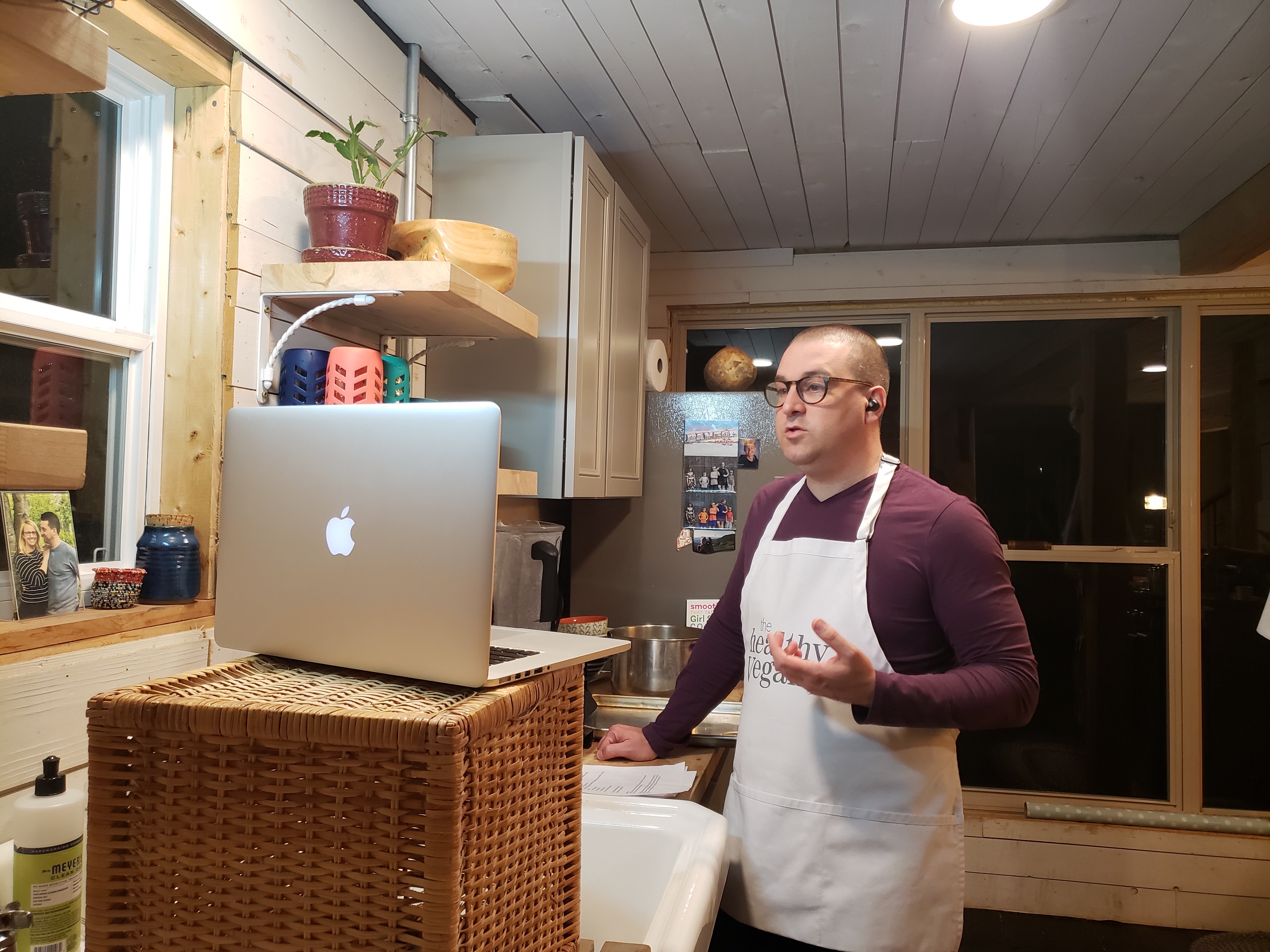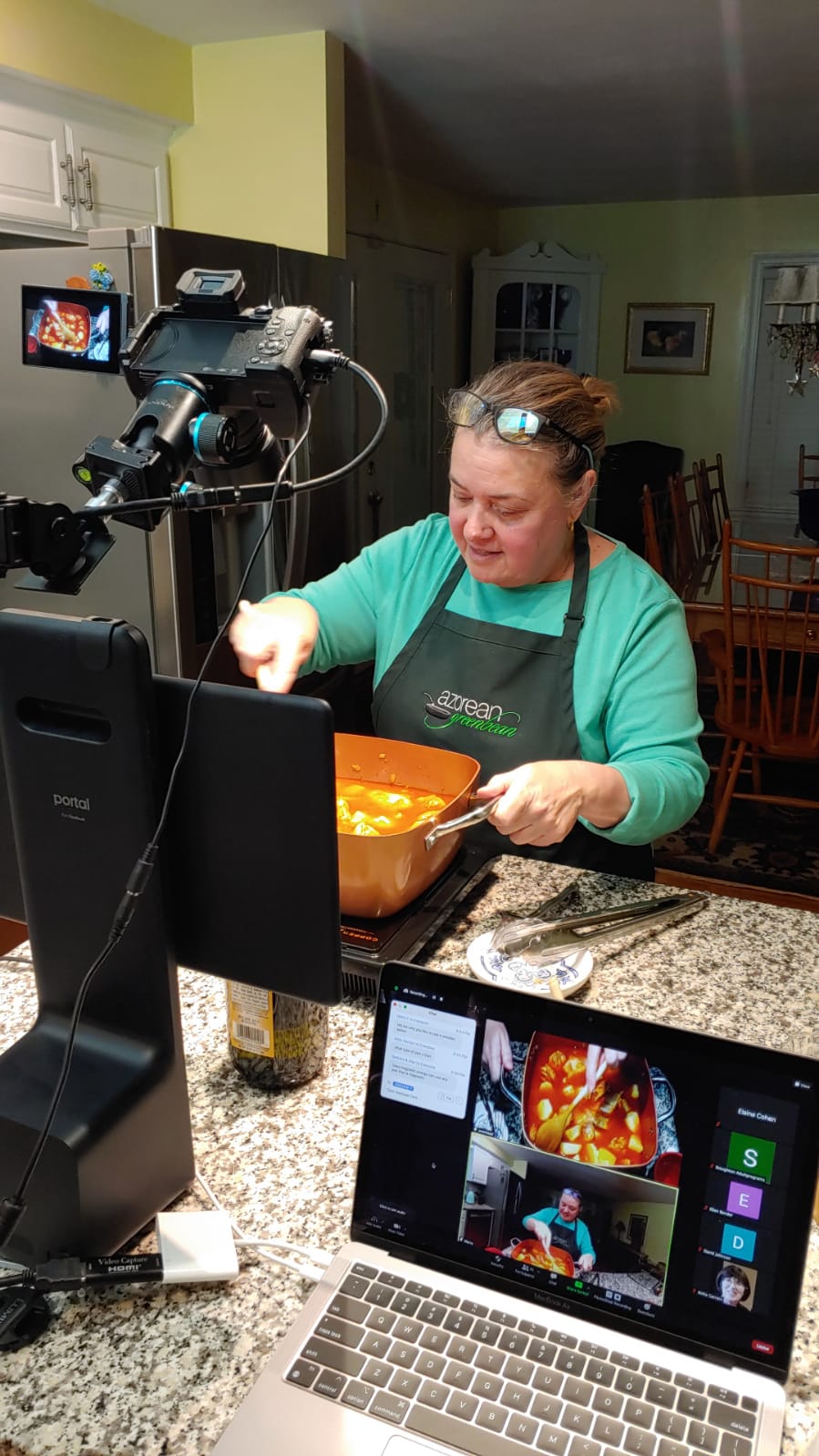The Morse Institute Library in Natick will host a virtual cooking demonstration next month on the health benefits of black garlic. The bulbs are being donated by Quarter Moon Farm in Hancock, N.H.
Libraries across the state are nurturing communities during the COVID-19 shutdown. Unable to allow patrons indoors, or inside only for limited services, they are reaching out via virtual cooking and food health classes as varied as their audiences: candy making, artisan bread, banana split popsicles, Azorean specialties, and more. Classes are typically conducted via Zoom or Facebook Live.
“There’s always people who have a traditional idea that libraries are only about books,” says Lyndsay Forbes of the Massachusetts Board of Library Commissioners, which oversees the state’s 369 public libraries. “A good library is also going to be a reflection of [patrons’] wants and needs, and that’s going to depend on the community.”
Classes are taught by professional and amateur cooks alike. At the West Tisbury Free Public Library, teens and adults made beef Bolognese last month under the tutelage of Kevin Crowell, chef/co-owner of Detente in Edgartown. In Newton, teens take the reins and lead Queer Teen Cuisine classes from their homes because, Teen and Tween librarian Megan Coffeytells them, “This is your time to shine!”

To the surprise of many librarians, the offerings are attracting audiences beyond town or city limits. Coffey says a Texas teen led a tostada making class after discovering Newton’s program. Josh Olshin of Stoughton Public Library says visitors are logging into classes from New Hampshire, Rhode Island, Connecticut, and Pennsylvania. “That’s the beauty of this: We get more people and we’re not putting out food for them and worrying about parking,” he says.
Libraries have varied ability to lead these classes. Some have generous “Friends of the Library” funds to provide class ingredients at no cost for patrons. Others require patrons to buy their own supplies. Some have in-house kitchens, like the newly renovated Roxbury branch of the Boston Public Library.

Needham Free Public Library doesn’t have a kitchen. So librarian Paula Dugan searched for a program last fall that would “engage children with an activity they could participate in as we used to do” before COVID-19. She found King Arthur Baking Company’s “Bake For Good,” which emphasizes math, science, and sharing skills. It provides, at no cost, a virtual instructor and ingredients to make two loaves of bread: one to keep and one to share. Dugan says about 50 families participated in the class.
Food and cooking classes in libraries aren’t new to the pandemic era. Forbes says libraries have offered food-themed programming for years, some with state-administered federal grants. Last year, the MBLC launched the “At the Table” program, which provides up to $10,000 grants for programs building partnerships within the community and enhancing culinary literacy.
The Bigelow library is an At the Table grant recipient. It partners with local organizations like WHEAT, a United Way program, and Growing Places, a community gardens program, to provide cooking tips along with free food to those in need. Colin McCullough, a longtime Millbury resident now living in Maine, has taught grant-funded classes on healthy eating for Worcester Public Library for four years. Last month, he led a virtual class with a recipe from his vegan cookbook “Smoothies That Taste Like Girl Scout Cookies.”
But a number of libraries established virtual food sessions during the COVID-19 shutdown when they saw patrons’ interest in the classes pique. “We offered a plant-based, vegetarian cook-along, and it filled up right away,” recalls Kate Sawisch of the Morse Institute. “We knew we had stumbled onto something.”
In Stoughton, it was patrons who requested a recent class with Maria Lawton of New Bedford because they enjoyed her earlier, in-person library class. Lawton, who goes by the sobriquet “Azorean Green Bean,” authored “Azorean Cooking; From My Table to Yours.” More than 40 people signed up for Lawton’s class on stewed chicken and potatoes.
“People are stuck in their houses, and we have to give them more things to do and some of that connection you get with the library,” says Stoughton library’s Olshin. Lawton, whose TV show “Maria’s Portuguese Table” ran on Rhode Island PBS, says virtual cooking classes are a way to “experience it together. Even though we’re in separate homes we are all together as one.”
Librarians cite “connection” as the primary driver for their programs. Dugan recalls the King Arthur class almost recreated in-house library visits. “We felt like a community seeing each other do the activity together in real time,” she recalls. “Children got to do something and not just watch something.”
There are so many food and cooking programs available in the state’s libraries that, inevitably, there’s an overlap in themes and recipes. Marie Letarte, the Bigelow library director, wishes libraries would collaborate on virtual listings. “It looks good for your library when everyone is cross promoting,” says Letarte.
The good news for patrons during these times is the abundance of cooking classes. You just have to connect with your local library or, if you’re inclined, a library farther afield. All it takes is access to Zoom or Facebook Live.
Peggy Hernandez can be reached at [email protected]. Follow her on Twitter @Peggy_Hernandez.
